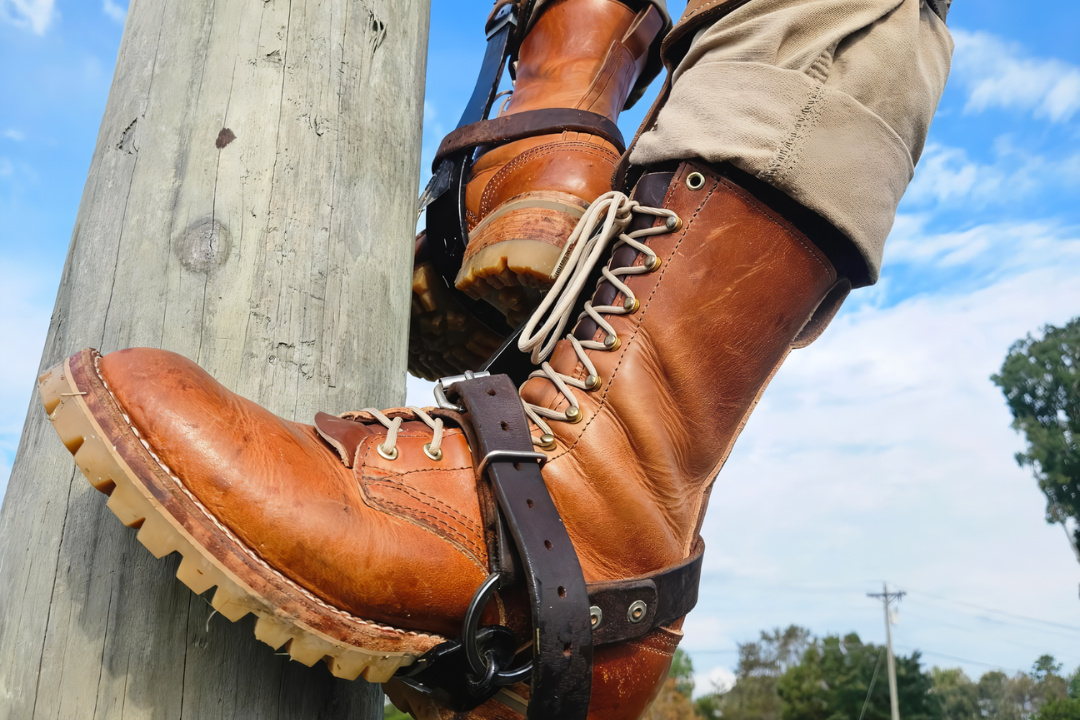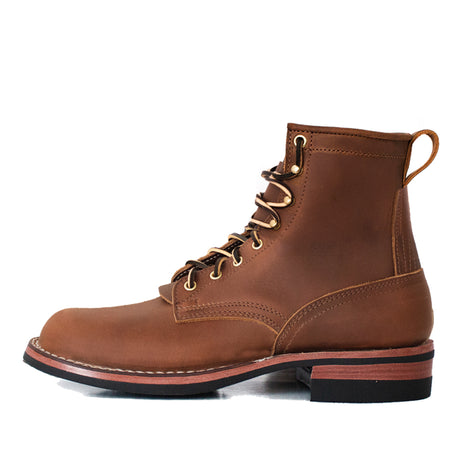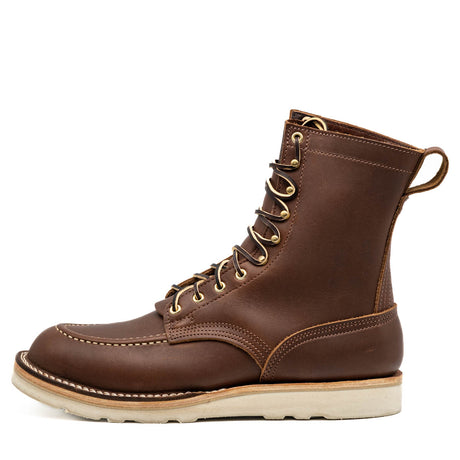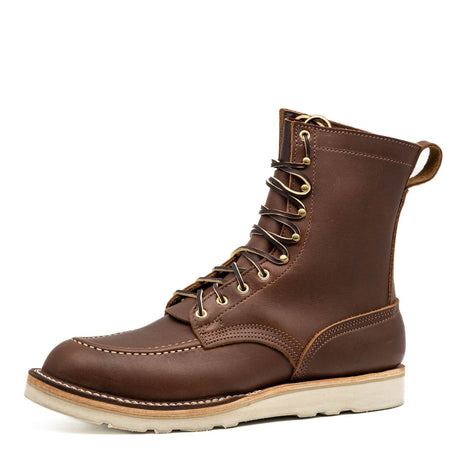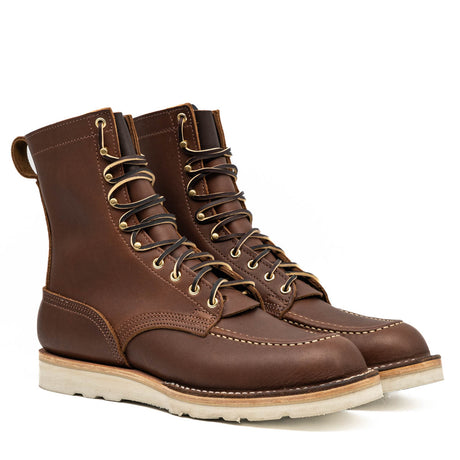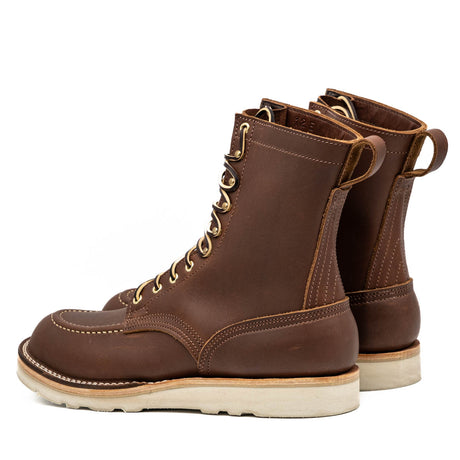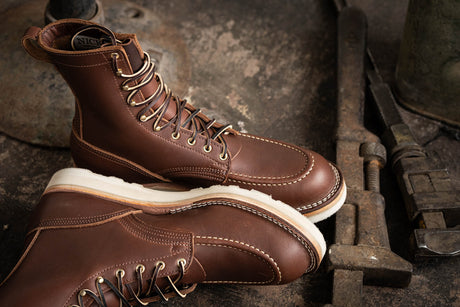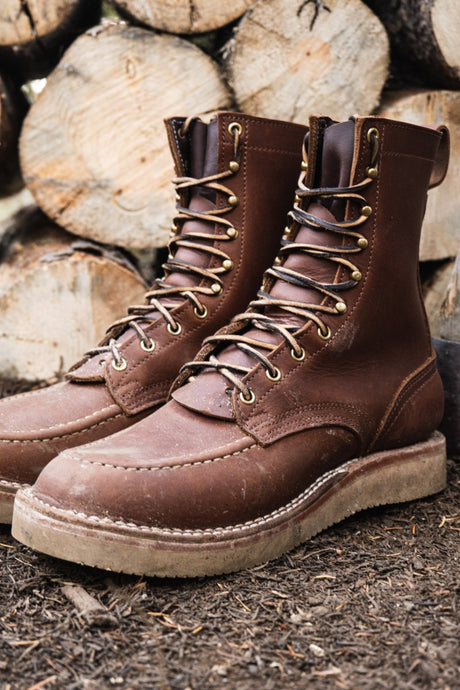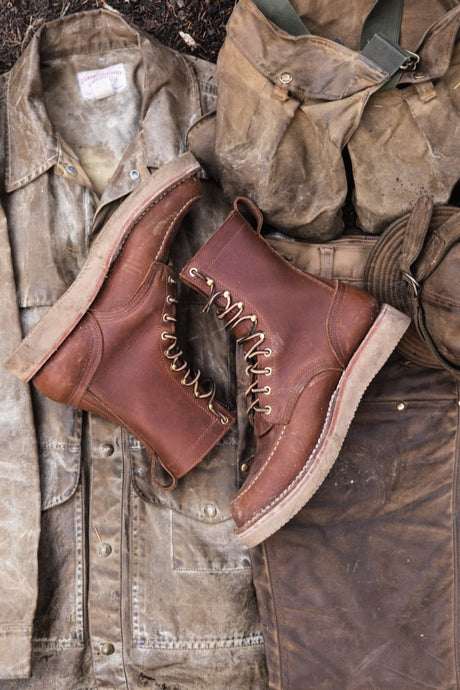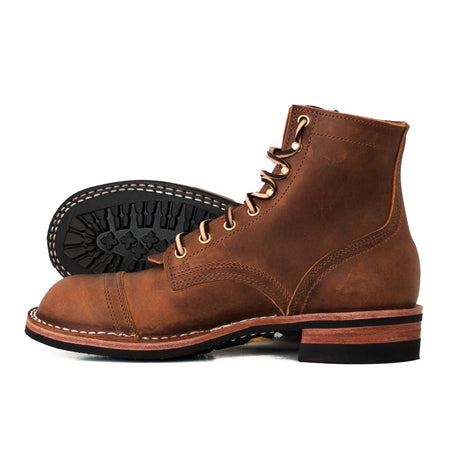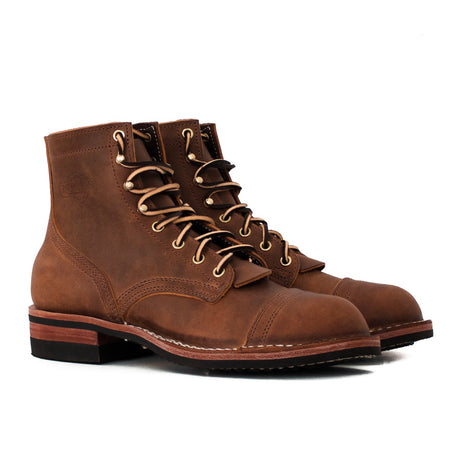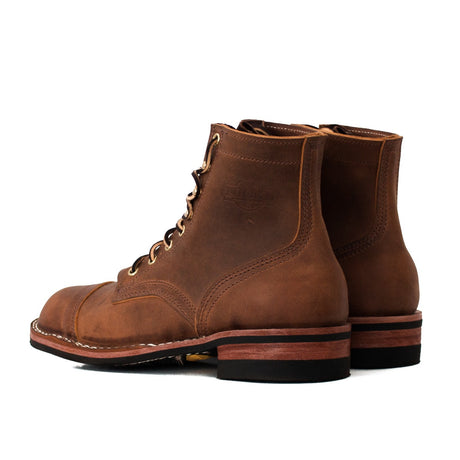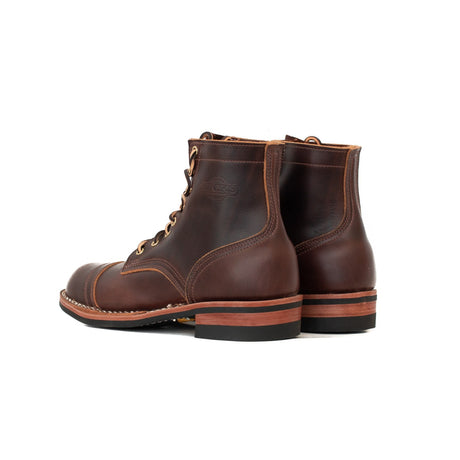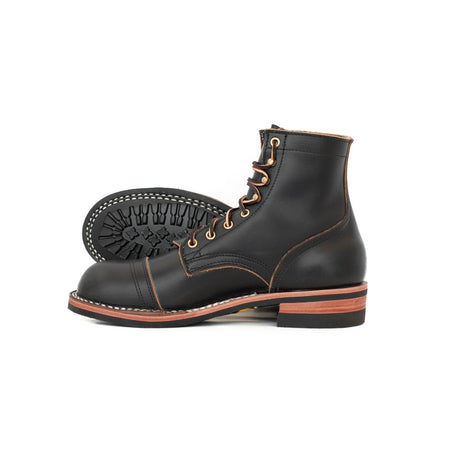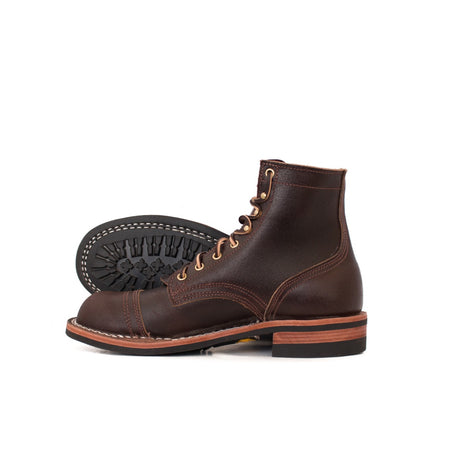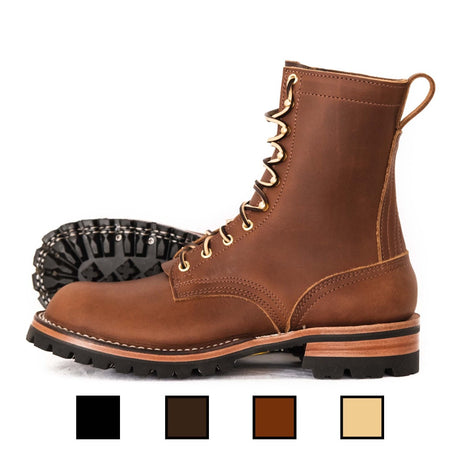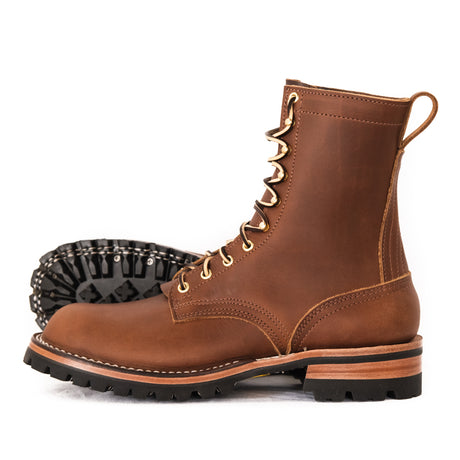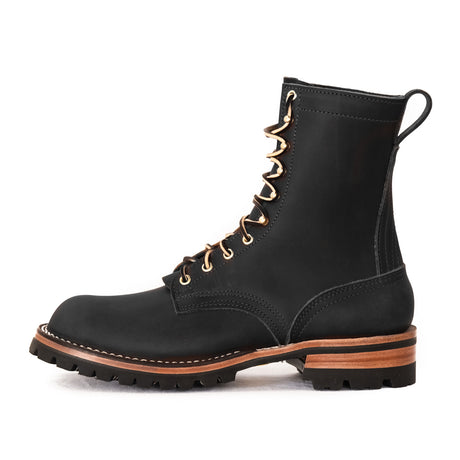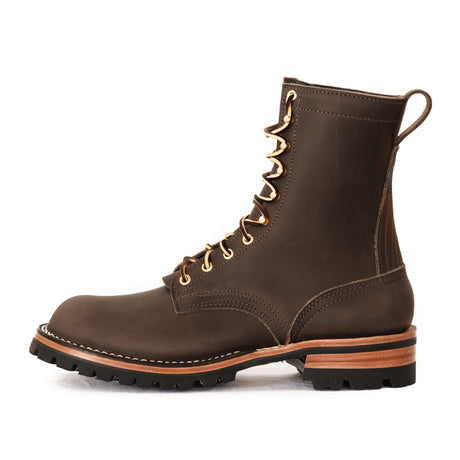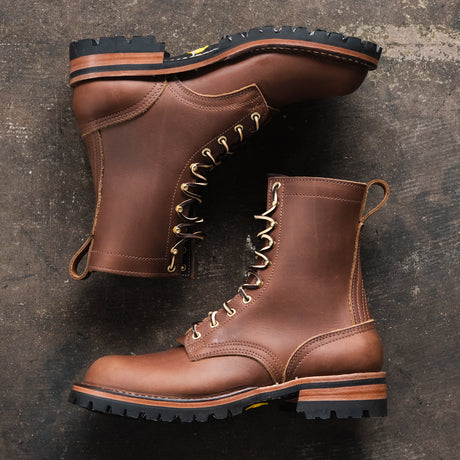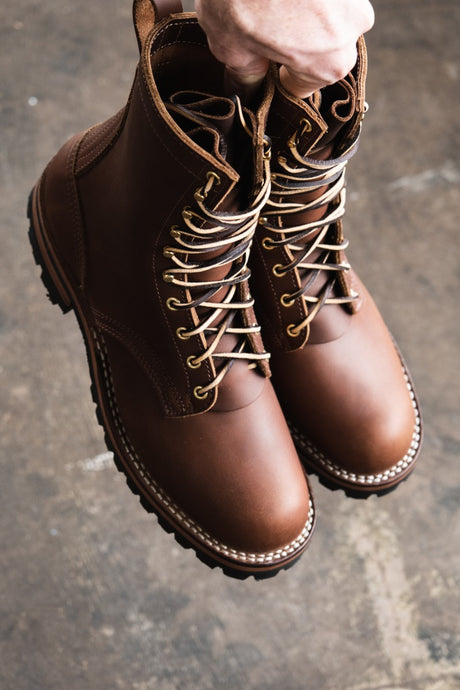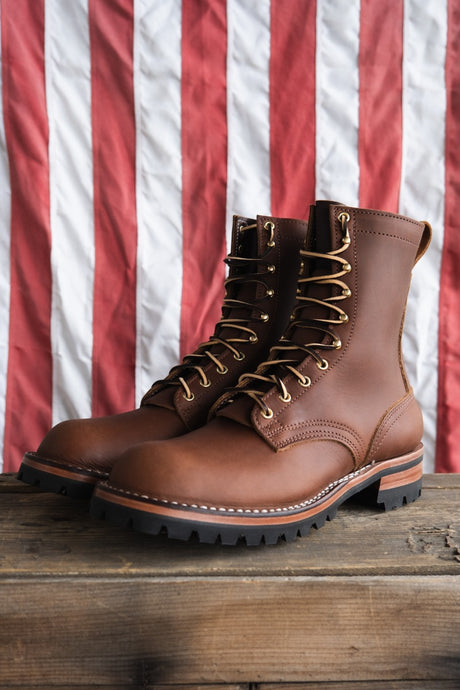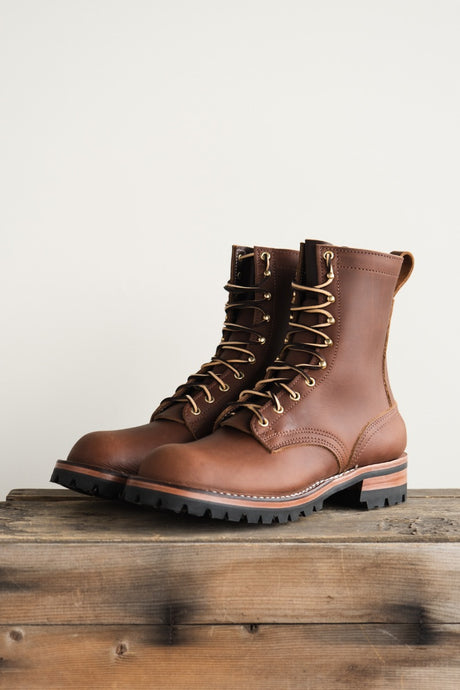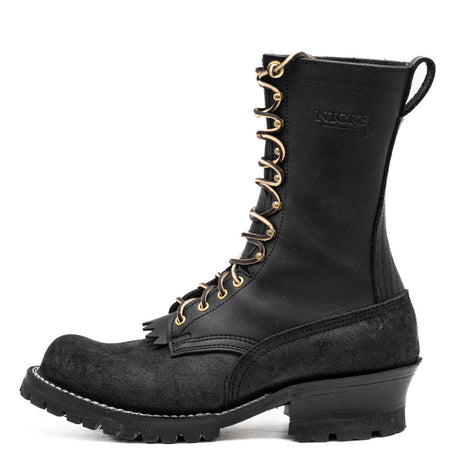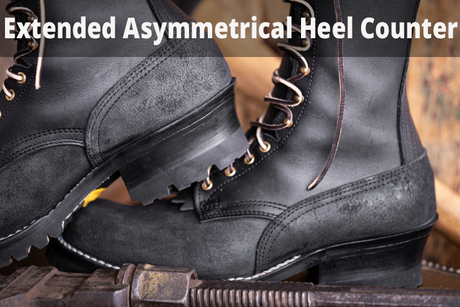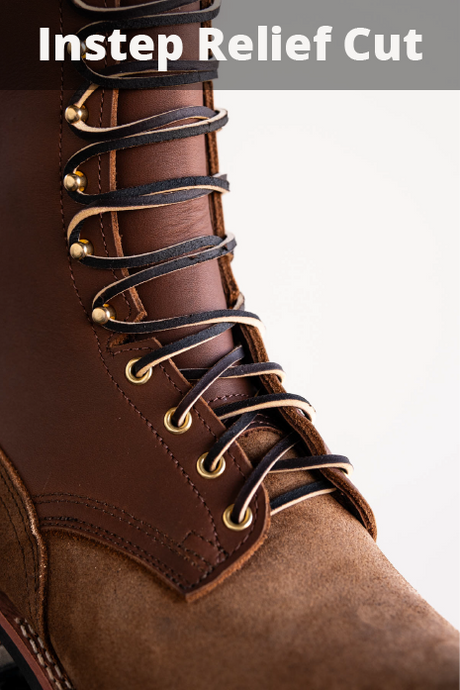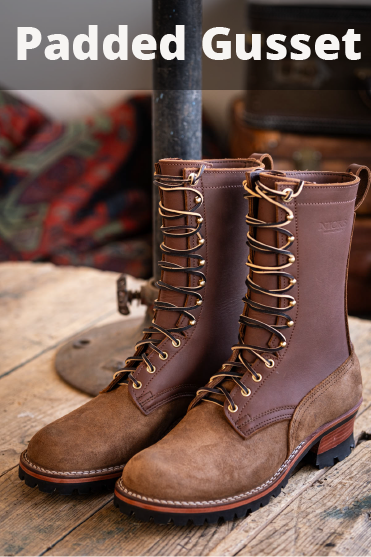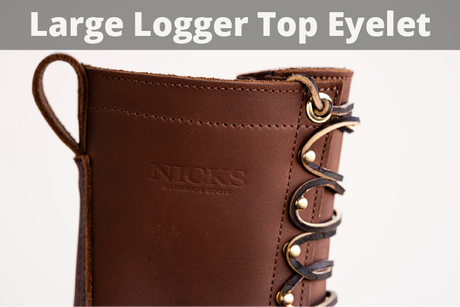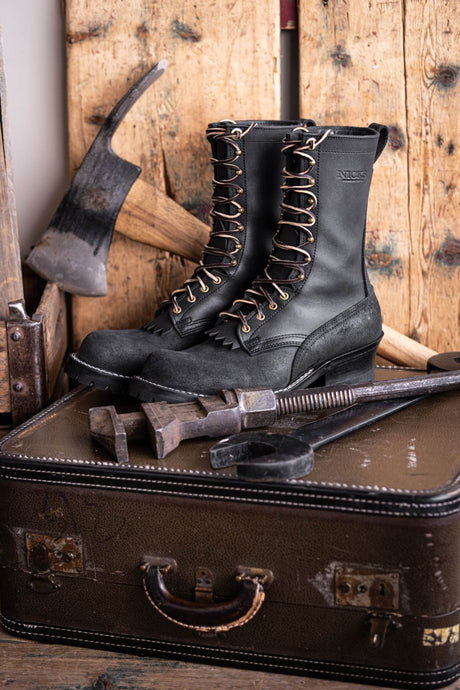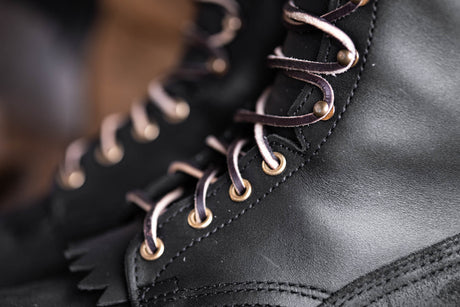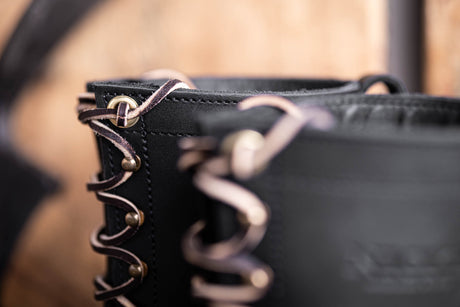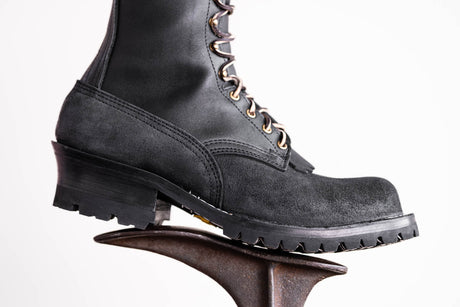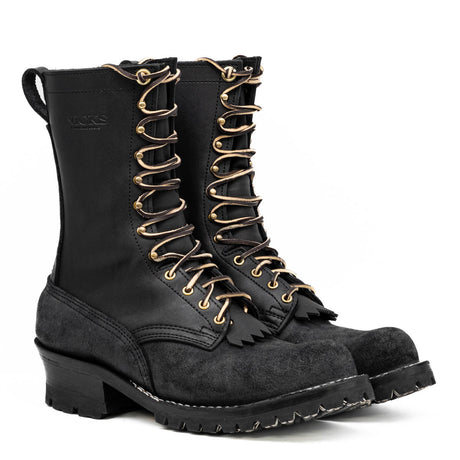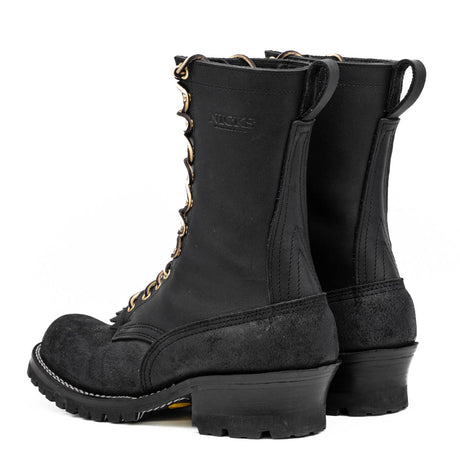Key Takeaways:
- Understanding Tax Deductibility: Work boots are tax-deductible if considered “ordinary and necessary” for specific jobs, particularly in industries like construction, electrical work, or manufacturing, where safety is a priority.
- Documentation is Essential: Maintaining detailed records, including receipts, job requirements, and proof of work-exclusive use, is crucial to validate your work boot expenses for potential tax deductions.
- Consult a Tax Professional: A tax professional can help you meet deduction requirements, maximize eligible expenses, and ensure compliance with IRS regulations for work-related items.
Every dollar helps.
Significant savings hinge on whether work boots are a legitimate tax deduction come tax season for professionals who rely on quality footwear to get the job done. Understanding what qualifies is key for anyone purchasing essential work gear.
At Nicks Boots, we know the importance of reliable, full-grain leather boots crafted to withstand the daily grind. Our commitment to quality means our boots are investment pieces designed for longevity and durability without synthetic compromises.
In this piece, we’ll explain the basics of deducting work boots and what you need to know to get started.
Understanding Tax Deductions For Work Boots
Claiming work boots as a tax deduction can be beneficial, but certain requirements must be met. For boots to qualify, they must be essential to your job and not adaptable to everyday wear. This often applies to specific fields like construction, electrical work, or manufacturing, where safety or durability standards require specialized footwear.
In addition, tax regulations typically allow deductions only for items deemed "necessary and ordinary" in your work. The boots must serve a clear business purpose — extra protection, slip-resistance, or material quality suited to rugged environments. Following these guidelines can help maximize the chances that your work boots will qualify as a tax-deductible expense.
Criteria For Deducting Work Boots As A Business Expense
If you’re considering deducting your work boots as a business expense, knowing the specific criteria that make them eligible is essential. The tax code offers specific guidelines, but not every pair of boots will qualify. Here’s what you need to know about each requirement:
“Ordinary and Necessary” For Your Job
Your boots must be considered “ordinary and necessary” in your field to qualify for a deduction. This means they should be standard gear for professionals in your work, such as construction or electrical work, where protective footwear is essential. Boots that meet safety or work standards specific to your profession will have a stronger case for being deductible.
Exclusive Use For Work
Another critical factor is that the boots must be exclusively used for work, meaning they’re not adaptable to everyday or personal use. The IRS typically views work-specific footwear as deductible if it’s unsuitable for casual or daily activities. Boots made for specialized tasks like heavy construction or industrial work are more likely to meet this criterion.
Complying With Industry Requirements
If your job requires you to wear certain types of boots — like steel-toe or slip-resistant options for safety compliance — this can strengthen the case for deductibility. Jobs that mandate safety-specific footwear, such as hazardous job sites with heavy equipment, often qualify as expenses because the boots directly support safe work practices. Meeting these industry standards helps demonstrate the necessity of your purchase.
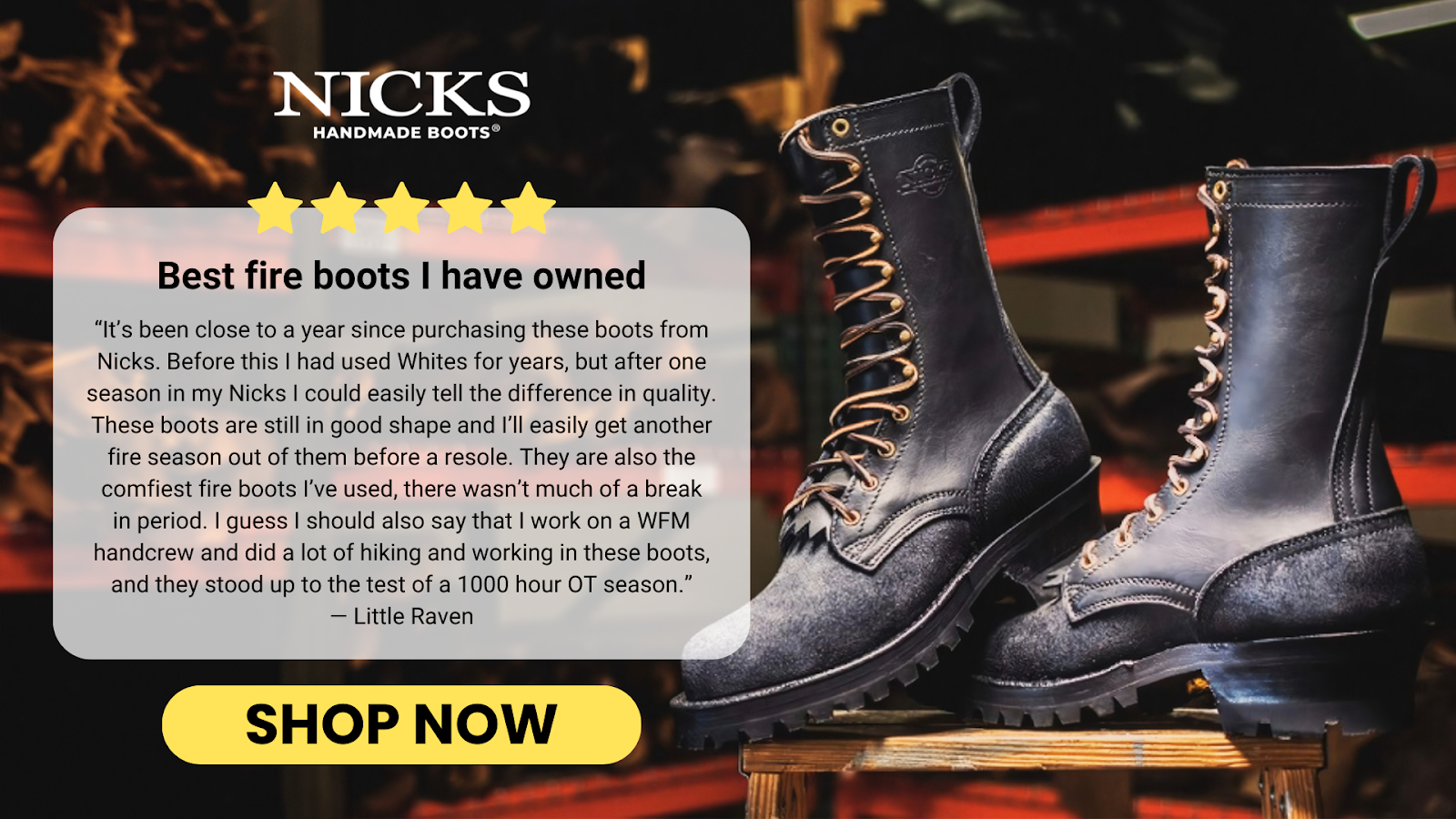
How To Document Your Work Boot Purchases For Tax Purposes
Keeping thorough records is essential to ensure your work boot expenses qualify for deductions. Proper documentation proves your purchase and strengthens your case if your deduction is questioned. Here are key ways to document your work boot expenses effectively:
- Keep Your Receipts: Always save the receipt when purchasing work boots, whether in paper or digital format. The best receipt is clear and itemized, showing the date, price, and boot model. This verifies your expense, which is essential if your deduction is audited.
- Note The Purchase Reason: To clarify that your work boots are solely for professional use, briefly note the purchase’s purpose. Recording details like your job role and how the boots meet specific industry needs can help justify the deduction. This simple note can be kept alongside your receipt for reference.
- Maintain Expense Logs: Consider keeping a log of all work-related expenses, including work boots, especially if you buy new pairs periodically. An expense log can include the date of each purchase, cost, and any relevant notes on job requirements. Keeping consistent records over time demonstrates a clear pattern of work-related purchases.
- Attach Proof of Job Requirements: Keep a copy of job guidelines or industry requirements that specify the need for protective footwear. This might include workplace safety standards or company policies that mandate specific types of boots. This evidence demonstrates that the boots are work-related and necessary for your job.
- Photograph Your Boots in Use: Consider taking photos of your boots worn on the job, especially if they show signs of work wear, like scuffing or other marks of heavy use. Visual proof can illustrate that the boots are exclusively used in a work environment. This additional step can be especially useful if your field involves rugged tasks.
- Store Records With Your Tax Documents: Organize all your documentation in a folder with other tax-related expenses for easy access. Storing records like receipts, expense logs, and supporting documents together helps you stay organized and ready for tax filing. Keeping everything in one place can make tax season stress-free and well-prepared.
Types Of Work Boots That Qualify For Deductions
To qualify for a tax deduction, work boots must be specialized for safety or professional requirements. Here are common types that often qualify:
Steel-Toe Boots
These boots feature reinforced toe caps, protecting the feet from heavy falling objects or compression. Industries like construction and manufacturing often require steel-toe boots to comply with safety regulations. Since these are essential for workplace safety, they frequently meet the IRS’s standards for tax-deductible work expenses.
Electrical Hazard Boots
Designed to reduce the risk of electrical shocks, these boots provide insulation for workers exposed to electrical currents. Electricians and utility workers commonly wear these as part of their safety equipment. Because of their specialized protective function, they often qualify as a tax-deductible expense.
Slip-Resistant Boots
Boots with slip-resistant soles are essential for jobs in environments with slippery or oily surfaces, such as kitchens, warehouses, and certain outdoor work areas. The slip-resistant design minimizes the risk of falls and injuries on the job. Their specific safety features often make them eligible for tax deductions if required by an employer.
Heat- And Water-Resistant Boots
Built for durability in extreme conditions, these boots protect workers from high temperatures, flames, and moisture. They’re vital for firefighters, construction workers, and those working in outdoor or harsh environments. Due to their role in ensuring safety and job performance, heat- and water-resistant boots can often be claimed as tax-deductible if they are a required part of the job.
Common Mistakes To Avoid When Claiming Work Boots As A Deduction
When claiming work boots as a tax deduction, avoiding common pitfalls can help ensure the process goes smoothly. Many taxpayers lose deductions by overlooking small but critical details, resulting in missed savings or penalties. Here’s what to avoid:
- Claiming Boots Suitable For Everyday Wear: One common mistake is claiming work boots that can be used as regular footwear, which the IRS may consider a personal expense. Boots that double as casual wear generally don’t qualify, so opt for pairs strictly designed for your job’s demands.
- Failing to Document the Purchase Properly: Deductions can be difficult to substantiate without clear records, such as a receipt or proof of purchase. Ensure you save detailed documentation, including receipts and notes clarifying that the boots are for work-only use, to support your claim.
- Overestimating Deductions: Another common error is claiming more than the purchase price, including related costs that don’t qualify. Only the direct cost of the boots should be claimed—additional expenses like cleaning supplies or insoles generally aren’t covered. Keeping your claim accurate minimizes red flags during tax review.
Consulting A Tax Professional For Clarity On Deductions
Consulting a tax professional can be invaluable when claiming deductions, especially for specific expenses like work boots. They can confirm whether your boots meet all criteria for work-related deductions and ensure that every necessary document is in place. This approach helps avoid potential mistakes and gives you confidence in your filing.
A tax professional is well-versed in the latest tax laws and can inform you of any recent changes affecting work attire or equipment deductions. They can also help identify other possible deductions you might have missed, maximizing your eligible expenses safely and accurately. For many, this advice can lead to greater savings and fewer concerns about tax compliance.
Additionally, a professional can guide you in maintaining records over time, especially if your work requires periodic equipment updates. This long-term perspective ensures you have all essential documentation and clarity on each year’s tax filing. Seeking expert assistance can save time, reduce stress, and help ensure you’re claiming all eligible deductions without error.
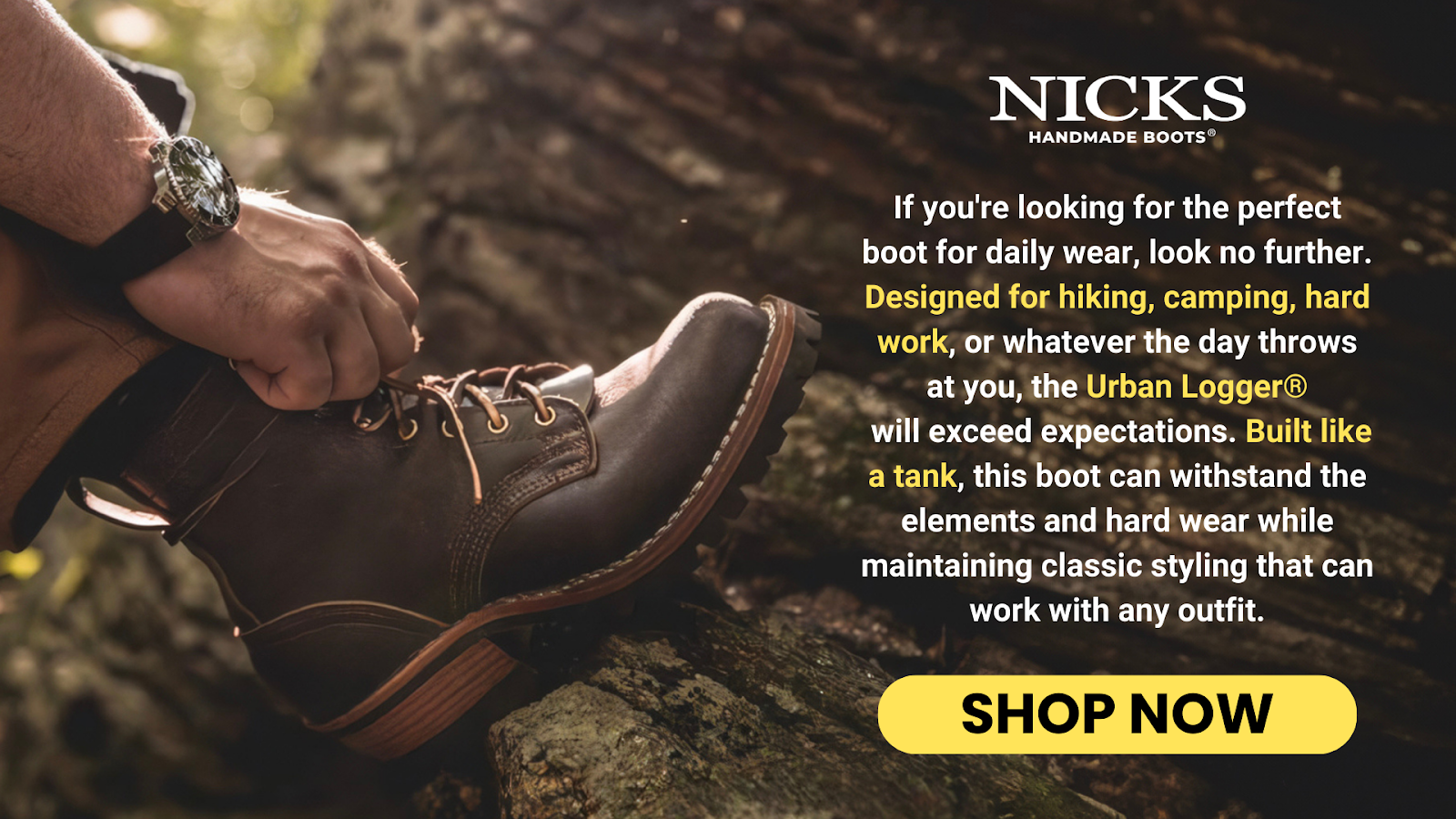
Final Thoughts
Understanding the tax deductibility of work boots is essential for professionals who rely on quality footwear to perform their jobs safely and effectively. Investing in durable, job-specific boots is a commitment to meeting workplace demands, safety standards, and, in many cases, compliance requirements. Recognizing when these essential items qualify as deductible expenses allows workers in demanding fields to get the most from their investment while supporting the longevity and functionality needed in their profession.
Read also:
Frequently Asked Questions About Are Work Boots Tax Deductible
What types of work boots are generally tax-deductible?
Work boots essential for job safety, such as steel-toe, slip-resistant, and electrical hazard boots, are commonly eligible for tax deductions. Specific industries often require These types of boots for protection, making them more likely to meet the “necessary” criteria.
Can I deduct work boots if I use them outside of work?
No, work boots must be used exclusively for work to qualify as a tax deduction. If worn casually outside of work, the IRS may consider them a personal expense and disallow the deduction.
What documentation do I need to claim work boots as a tax deduction?
You’ll need receipts, proof of purchase, and, ideally, documentation of job requirements that specify the need for protective footwear. These records help confirm that the boots were purchased solely for work purposes.
Are repairs for work boots also tax-deductible?
Yes, if the repairs are necessary for work boots exclusively used on the job, they can typically be deducted. Ensure that receipts and documentation show that these repairs were work-related.
Can self-employed individuals deduct work boots as a business expense?
Yes, self-employed individuals can claim work boots if they meet their profession's “ordinary and necessary” criteria. As with employed individuals, the shoes must be essential for the job and not suited for everyday wear.
Do I need to attach proof of job requirements for my boots?
Although it’s not required, having proof of job requirements, such as a company policy mandating safety footwear, can strengthen your deduction claim. This documentation demonstrates that the boots are essential for your role.
Are high-quality or designer work boots tax-deductible?
Yes, even high-quality or designer options can qualify if the boots are functional and specifically for work. The IRS focuses on the necessity of the boots for job safety rather than the brand.
Is there a maximum amount I can claim for work boots?
There's no specific limit on the deduction for work boots, but the amount should be reasonable for work requirements. The IRS may examine unusually high claims with extra scrutiny.
Do I need to itemize deductions to claim work boots?
Yes, work boots fall under itemized deductions for work-related expenses. If you take the standard deduction instead, you won’t be able to claim them as a separate expense.
Can work boots be deducted in industries other than construction?
Industries such as electrical work, food service, and manufacturing may also qualify if specific boots are necessary for safety and job compliance. These deductions apply if the boots are exclusively used for work and meet industry safety standards.



